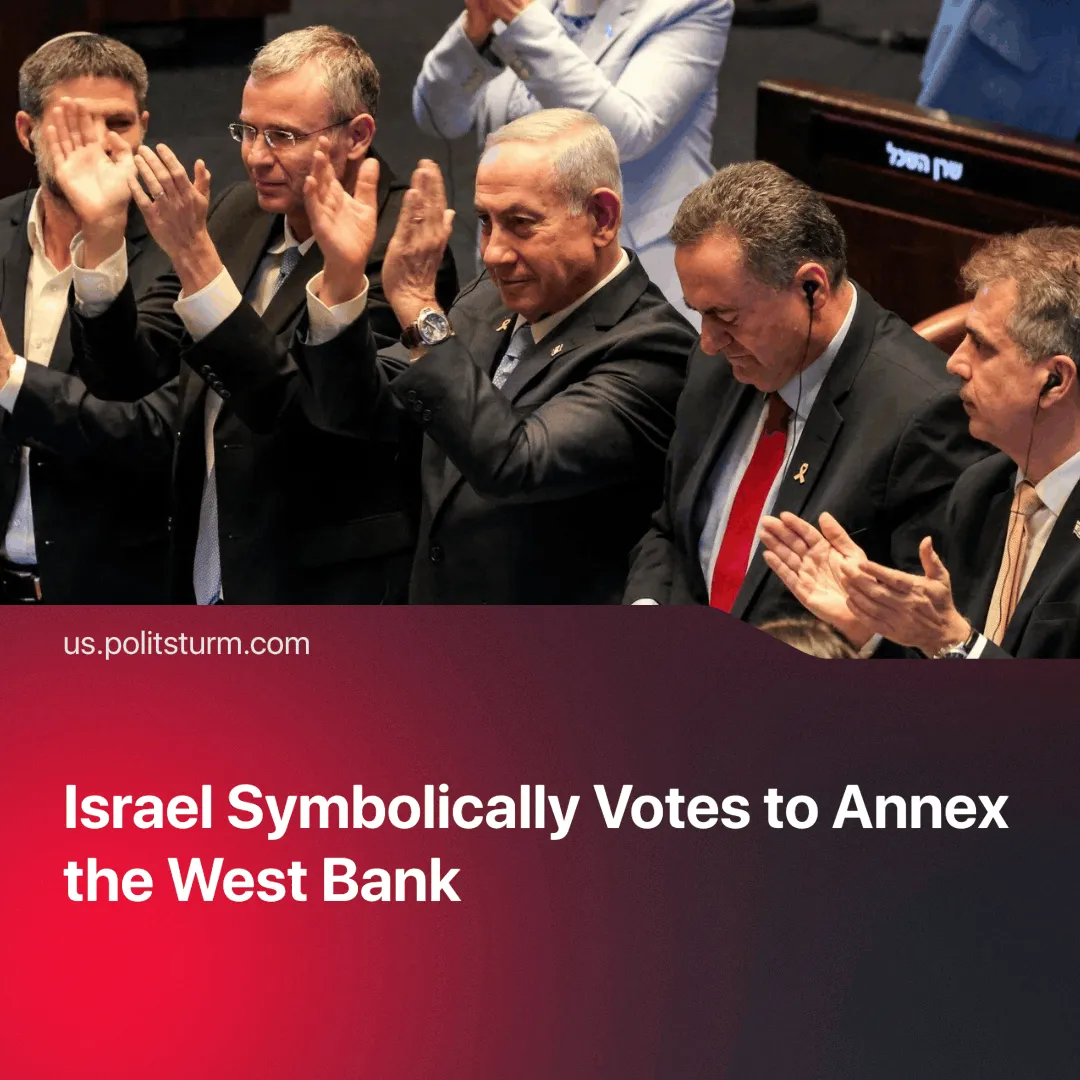The vote paves the way for West Bank annexation, continuing Israel’s strategy of constant conflict to rally domestic and foreign support amid growing global opposition.
Details. On 23 July 2025, the Israeli Knesset voted 73-13 in favour of a bill to call for the annexation of the West Bank, originally proposed by Bezalel Smotrich, the country’s far-right finance minister.
► Knesset speaker Amir Ohana, who voted for the bill, said: “We are the original first natives of this piece of land. Jews cannot be the ‘occupier’ of a land that for 3,000 years has been called Judea.”
► While technically symbolic and lacking immediate legal consequences, the vote could pave the way for future government moves to formally recognise full annexation. This reflects the broader territorial ambitions of extending the Israeli state into all of Palestine.
Context. The vote followed a joint condemnation of Israel’s actions in Gaza by several Western countries. In the days after the vote, France, England, Canada, and Malta announced steps towards recognising a Palestinian state.
► Just a month earlier, however, the EU had joined the United States in backing Israel’s offensive strikes on Iran, temporarily setting aside criticism of Israel in favour of supporting its military actions.
► Israel’s genocidal actions in Gaza have continued unabated for nearly two years. Through sustained bombing and deliberate starvation, at least 60,000 Gazans have been killed.
► Israel has also expanded its aggression in the region, engaging in conflicts with Syria, Lebanon, Yemen, and Iran. In 2025, military spending rose by USD 12.5 billion, maintaining defence expenditure at around 9% of GDP.
► The perceived state of constant threat keeps the IDF popular among Israelis, even as political institutions and leaders like Netanyahu face declining support. Public backing for the military spikes after major conflicts such as 7 October 2023, the 2024 invasion of Lebanon, and the 2025 Iran–Israel war.
Important to Know. Beyond imperialist motives such as market expansion and securing regional dominance for finance capital, Israel’s aggressive stance helps deflect attention from internal government crises. This mirrors other “states under siege”—Ukraine, Russia, Iran—where capitalist states have relied on external conflicts to divert focus from economic crisis and political instability.


